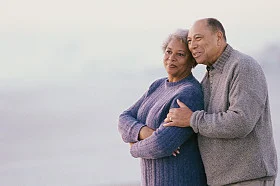Tag: lonely

“It’s important to make new connections and friends as you get older,” the retired Boston public school teacher, who is single, said during a recent webinar on “productive aging” organized by the University of Massachusetts, Boston. Even if O’Connor goes to one of the organized events by herself, she said she doesn’t feel like she’s…

The purpose of the 2020 restrictions on older people’s activities during COVID – whether voluntary or government enforced – were crucial: keeping them alive as the deadly Delta variant raced through the population worldwide. But saving lives came at the cost of grandparents’ mental health, according to a study in the Journal of Gerontology: Socia…





